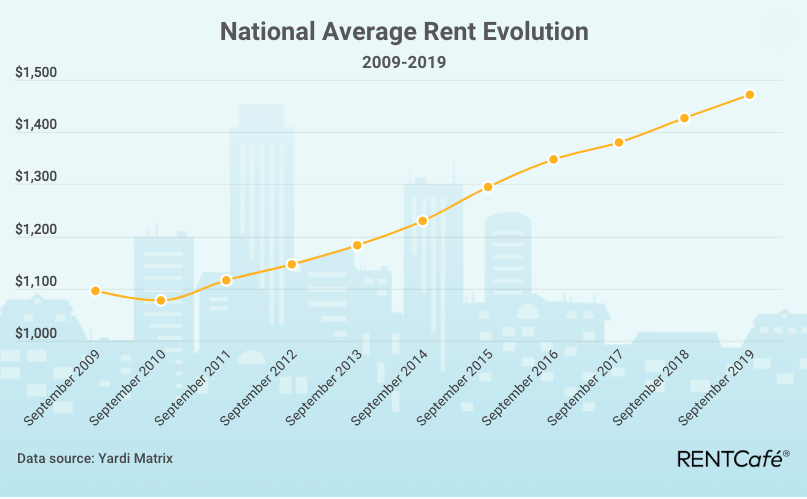America’s rental prices declined in September, as RentCafé indicates the nation’s average rent fell by $1 – the first decrease since 2017.
Although September’s month-over-month decrease may seem insignificant, RentCafé says that it points to a slight wind-down in rent prices in the context of a more volatile financial climate.
According to the company’s Apartment Market Report, the national average rent in August totaled $1,471.
While this is a 0.1% decrease from the previous month, it also represents a 3.2% increase from the same time period in 2018.
However, despite September’s year-over-year increase, RentCafé notes that apartment rates in the majority of small and large cities registered either minor decreases or stagnated growth during the month.
“Since last month, apartment rents saw minor declines in more than half of the cities we analyzed,” RentCafé writes. “Small and large cities lead the trend, with prices dropping in 59% of small cities and 56% of large cities, while 42% of mid-sized cities saw their rates dwindle in September.”
RentCafé states that rents in Provo, Utah decreased the most in the past month (-2.2%), which was followed by North Charleston, South Carolina (-1.5%) and Midland, Texas (-1.5%).
Surprisingly, rents decreased in three of the nation’s five priciest large cities since August, and only New York hubs saw increases since last month.
“While rents in the Bay Area waned, by -0.1% in San Francisco ($3,703) and -1.1% in San Jose ($2,762), the average rents in Manhattan and Brooklyn ($2,956) shot up by 1.5% and 0.5% month-over-month, respectively,” RentCafé writes. “Boston ($3,505) rates also went down by -1.1% since August.”
The image below highlights September’s average rent evolution:

NOTE: By utilizing rental data provided by Yardi Matrix, RENTCafe’s research team analyzed rent data across the 260 largest cities in the country. The report is based on apartment data related to buildings containing 50 or more units.







